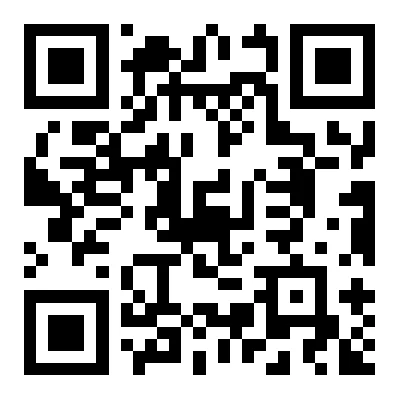Thailand tourism spoken language
To learn Thai language, you should always listen and speak. You can write down some oral quotations, try to speak more after listening, and if you keep doing it, you will make great progress. In addition, we must master basic vocabulary.
Common words are as follows:
Basic statement:
Yes = chai
Not = mai-chai/mai-oua
Thank you = kob-khun
Thank you very much = kob-khun-mark
You're welcome = mai-pen-rai
Please = ka-ru-na
Sorry = kor-a-nu-yart
Hello = sa-wat-dee
Goodbye = lar-korn
Good morning = sa-was-dee-torn-chao
Good afternoon = sa-was-dee-torn-bai
Good evening = sa-was-dee-torn-khum
Good night = ra-tree-sa-was
I don't understand = chan-mai-kao-jai (woman says so) pom-mai-kao-jai (man says so)
I = chan (female), phom (male)
You = khun
You = khun
What's your name = khun-cheu-ar-rai
Nice to meet you = dee-jai-tee-dai-bob-khun
Shopping:
How much is this = nee-la-ka-tao-lai?
What is this = nee-keu-ar-rai?
I'll buy ... = shun-ja-seu-mun ...
Did you ... = khun-mee-...-Reu-plao?
Can you use a credit card here = khun-rubb-brat-credit-reu-plao?
Postcard = praj-sa-nie-brat
Stamp = sataem
One point = nit-noi
Many = maak
All = thung-mode
Eat:
Breakfast = ar-harn-chao
Lunch = a-Haan-Tian
Dinner = ar-harn-yen
Cheers = chok-dee
Pay = khep-tang
Bread = ka-nom-pang
Beverage = kreung-deum
Coffee = ca-fae
Tea = naam-chaa
Fruit juice = naam-pom-la-mai
Water = naam
Beer = bia
Wine = waj
Meat = neur-sat
Beef = nerve-vouv
Pork = nerve-mou
Fish = nerve-plaa
Vegetables = phak
Fruit = pom-la-mai
Potato = man-fa-rang
Sweet food = kong-wang
Ice cream = ice cream
Travel and ask for directions:
..... where =...-you-tee-nai?
How much is the fare = ka-douy-sarn-tao-rai?
Ticket = tua
Where are you going = khun-kum-rung-pai-nai?
Where do you live = khun-you-tee-nai
Train = rod-fai
Bus = rod-may
Subway = rod-fai-tai-din
Airport = sa-narm-bin
Railway station = sa-tarn-nee-rod-fai
Bus stop = pai-rod-may
Subway station = sa-tarn-nee-rod-fai-tai-din
Exit = ork-pai
Entry = ma-teung
Hotel = rong-ram
Guest room = hong
Reservation = jong
Do you have any vacancies tonight = imee-hong-Wang-sum-rub-keun-nee-mai?
There are no vacancies = mai-mee-hong-wang
Passport = nangsue-deun-thaang
Orientation:
Left = saaj
Right = khwaa
Straight = trong
Shang = keun
Lower = long
Far = klaj
Near = klaj
Length = yao
Short = sun
Map = phaen-tie
Location:
Post office = tee-tum-karn-plai-sa-nee
Museum = pi-pit-ta-pan
Bank = ta-na-karn
Police station = sa-thaan-nie-tam-roewat
Hospital = rong-pa-ya-barn
Pharmacy = ran-kai-ya
Restaurant = raan-ahaan
School = rong-rien
Church = bost
Toilet = hong-naam
Street = ta-nonn
Square = ja-tu-rus
Shan = pou-kao
Sea = ma-ha-sa-moot
Lake = ta-le-sarp
River = mae-nam
Swimming pool = A sa-waaj-naam
Tower = teuk
Bridge = sa-parn
Time and date:
What time is it = nee-va-la-ar-rai? Kie-mong?
One day = wan
Week = sub-pa-daa
Month = deun
Year = pee
Monday = wan-tjan
Tuesday = wan-ang-kaan
Wednesday = wan-phoet
Thursday = wan-pha-ru-hat-sa-boh-die
Friday = wan-sook
Saturday = wan-sao
Sunday = wan-ar-tit
January = mak-ka-ra-kom
February = koem-phaa-phan
March = mee-na-kom
April = me-saa-jon
May = phut-sa-phaa-khom
June = mi-tu-na-yon
July = ka-rak-ka-da-kom
August = sing-ha-kom
September = kun-ya-yon
October = tu-la-kom
November = phut-sa-tji-kaa-jon
December = than-waa-khom
Spring = reu-doo-bai-mai-pli
Xia = reu-doo-ron
Autumn = ru-doe-baj-maj-roewang
Winter = reu-doo-nao
Today = wan-nee
Yesterday = mua-waan-nie
Tomorrow = phroeng-nie
Question 1: Is Thai easy to learn? Generally speaking, Thai is not easy to learn, not only the letters are difficult to write, but also there are five tones, and it is not pleasant to read ~ but one thing is quite good, it is more like Chinese in language structure, and verbs have no tenses. It is strange that in word order, Thai people say "my book" is "my book". The pronunciation of Thai is similar to that of Zhuang, and the meaning is almost the same. Like those who learned Pinyin when we were young, Thai is also important, with vowels, initials and tones, etc.
Question 2: Is Thai easy to learn? Thai is not difficult to learn, but also a phonetic alphabet, and sentence patterns are also subject-predicate-object, so the most difficult thing is not syntax, as you said, but grammar is relatively difficult, but Thai is a typical language that is difficult to get started and will become simpler and simpler in the future. The most important thing is spelling, so you must master the pronunciation of all consonants, vowels and tones (in Thai, the first tone is not the first tone symbol, so you must remember the tone rules). Then there are all kinds of pre-introduction rules, the rules of not pronouncing characters, and there is nothing else. When these are mastered, Thai is just to remember more words and speak more. Compared with Chinese, Thai is really much simpler.
Question 3: What language to speak when traveling to Thailand _ What language to use in Thailand? Thai is a pentatonic language and belongs to Ka-Tai language combination. This combination includes Shan and Khun in Myanmar and Tho in Vietnam. There are five main dialects in Thailand. The central dialect is not only used in writing literature; In Bangkok, it is also widely used in daily conversation. It is understandable that foreign tourists can't understand and read Thai. However, most Thais understand that English, especially Bangkok, is the main business language. In major tourist areas, most hotels, shops and restaurants are accessible in English and other European languages. Signs in Thai and English have been erected on roads all over the country. Recommended tourist routes: Chengdu to Thailand, Singapore, Malaysia, 10 days, Chengdu to Thailand, 6 days, labels in Thai.
Question 4: How to learn the Thai language You should always listen and speak the Thai language. You can write down some oral quotations, try to speak more after listening, and keep doing it, and you will make great progress. In addition, we must master basic vocabulary.
Common words are as follows:
Basic statement:
Yes = chai
Not = mai-chai/mai-oua
Thank you = kob-khun
Thank you very much = kob-khun-mark
You're welcome = mai-pen-rai
Please = ka-ru-na
Sorry = kor-a-nu-yart
Hello = sa-wat-dee
Goodbye = lar-korn
Good morning = sa-was-dee-torn-chao
Good afternoon = sa-was-dee-torn-bai
Good evening = sa-was-dee-torn-khum
Good night = ra-tree-sa-was
I don't understand = chan-mai-kao-jai (woman says so) pom-mai-kao-jai (man says so)
I = chan (female), phom (male)
You = khun
You = khun
What's your name = khun-cheu-ar-rai
Nice to meet you = dee-jai-tee-dai-bob-khun
Shopping:
How much is this = nee-la-ka-tao-lai?
What is this = nee-keu-ar-rai?
I'll buy ... = shun-ja-seu-mun ...
Did you ... = khun-mee-...-Reu-plao?
Can you use a credit card here = khun-rubb-brat-credit-reu-plao?
Postcard = praj-sa-nie-brat
Stamp = sataem
One point = nit-noi
Many = maak
All = thung-mode
Eat:
Breakfast = ar-harn-chao
Lunch = a-Haan-Tian
Dinner = ar-harn-yen
Cheers = chok-dee
Pay = khep-tang
Bread = ka-nom-pang
Beverage = kreung-deum
Coffee = ca-fae
Tea = naam-chaa
Fruit juice = naam-pom-la-mai
Water = naam
Beer = bia
Wine = waj
Meat = neur-sat
Beef = nerve-vouv
Pork = nerve-mou
Fish = nerve-plaa
Vegetables = phak
Fruit = pom-la-mai
Potato = man-fa-rang
Sweet food = kong-wang
Ice cream = ice cream
Travel and ask for directions:
..... where =...-you-tee-nai?
How much is the fare = ka-douy-sarn-tao-rai?
Ticket = tua
Where are you going = khun-kum-rung-pai-nai?
Where do you live = khun-you-tee-nai
Train = rod-fai
Bus = rod-may
Subway = rod-fai-tai-din
Airport = sa-narm-bin
Railway station = sa-tarn-nee-rod-fai
Bus stop = pai-rod-may
Subway station = sa-tarn-nee-rod-fai-tai-din
Exit = ork-pai
Entry = ma-teung
Hotel = rong-ram
Guest room = hong
Reservation = jong
Do you have any vacancies tonight = imee-hong-wang-sum-rub-keun- ... > >
Question 5: Is Thai easy to learn? The most difficult thing to learn in Thai is not writing, but reading. Because Thai has five tones, but unlike Chinese, the four tones are fixed. These five tones will change tone because of the different consonants, that is to say, sometimes you look at the target as two tones, but actually you read three tones and so on. Therefore, after learning Thai, you will find that English is actually the simplest language, and English is more useful than Thai. If you don't have a good career plan, learn English well, because I didn't feel that Thai changed my life when I came back from studying Thai, but it was in Thailand. ! ! !
Question 6: How to learn Thai from the most basic vowel consonants?
Question 7: How to learn the Thai language? I really want to learn 20 points. I can download the software for learning Thai, or look for some Thai materials on the Internet. The software for learning Thai is available where I can download the software.
Question 8: How do my parents say that my father is a broken mother?
Question 9: Is Thai easy to learn? Generally speaking, Thai is not easy to learn, not only the letters are difficult to write, but also there are five tones, and it is not pleasant to read ~ but one thing is quite good, it is more like Chinese in language structure, and verbs have no tenses. It is strange that in word order, Thai people say "my book" is "my book". The pronunciation of Thai is similar to that of Zhuang, and the meaning is almost the same. Like those who learned Pinyin when we were young, Thai is also important, with vowels, initials and tones, etc.
Question 10: Is Thai easy to learn? Thai is not difficult to learn, but also a phonetic alphabet, and sentence patterns are also subject-predicate-object, so the most difficult thing is not syntax, as you said, but grammar is relatively difficult, but Thai is a typical language that is difficult to get started and will become simpler and simpler in the future. The most important thing is spelling, so you must master the pronunciation of all consonants, vowels and tones (in Thai, the first tone is not the first tone symbol, so you must remember the tone rules). Then there are all kinds of pre-introduction rules, the rules of not pronouncing characters, and there is nothing else. When these are mastered, Thai is just to remember more words and speak more. Compared with Chinese, Thai is really much simpler.






